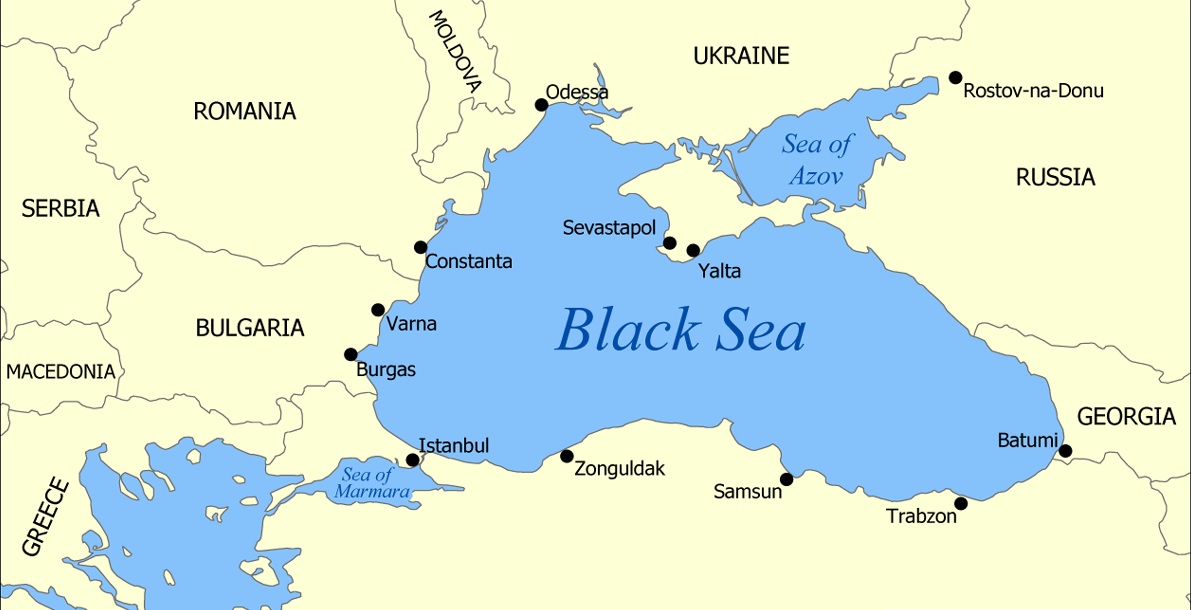
On the very sad occasion of the 25th anniversary of the 1993 Solingen arson attack tragedy, we stated in our article on the subject that “racism, xenophobia and Islamophobia are on the rise. Xenophobia involving aggression and violence has now reached extreme levels and has taken the place of old-style of racism. Racist forms of discrimination have metamorphosed into publicly-accepted extreme xenophobia.”[1]
Recently on 7 November 2018 the findings of the Leipzig Authoritarianism Study 2018 on authoritarian and far-right attitudes in Germany presented in Berlin by Dr.Oliver Decker and Professor Elmar Brähler of the Competence Centre for Research into Right-Wing Extremism and Democracy at Leipzig University. We understand from the announcement that study was conducted in cooperation with the Heinrich Böll and Otto Brenner Foundations.[2]
We understand that the researchers, in the context of the study, surveyed 2416 people (west: 1918, east: 498) focusing on the topics of advocating a right-wing authoritarian dictatorship, xenophobia, anti-Semitism, social Darwinism, chauvinism, and trivialization of National Socialism.
The key finding of this study was announced in the Press Release of Leipzig University with the title of “Nearly one in three Germans support xenophobic views; prejudice against individual groups on the rise”. According to study director Dr. Decker, the survey “shows quite clearly that xenophobia is becoming increasingly widespread throughout the country.”[3]
According to the study findings, a total of 36 percent of Germans agree with the statement that foreigners only come Germany to exploit the welfare state (east: 47.1 percent, west: 32.7 percent). More than a quarter would send foreigners back to their home countries if there were a shortage of jobs in Germany (east: 32.4 percent, west: 25 percent). Around 36 percent consider Germany to be dangerously swamped by foreigners (east: 44.6 percent, west: 33.3 percent).
The study also finds “an alarming increase in prejudice against Muslims.” According to Professor Brähler, “while in 2010, for example, around 33 percent of respondents claimed that they felt like foreigners in their own country because of large numbers of Muslims, in 2018 this figure has risen to 55 percent in both eastern and western Germany”.
The findings of the survey show that anti-Semitism is widespread. In that respect, one in ten respondents explicitly agree with the statement that “there is something special about Jews and they don’t really fit in with us”, while a further 20 per cent implicitly agree with it. Up to one-third of respondents agree at least in part with anti-Semitic statements. In fact, very recent CNN comprehensive report on rise of anti-Semitism in Germany indicates the similar results. According to CNN, 76% of Germany's Jews believe anti-Semitism is a problem, whereas 77% of non-Jews in Germany believe the opposite. It is also striking that 40% of young German adults know little to nothing about the Holocaust. [4]
The survey finds widespread prejudice also against Sinti and Roma. 60 per cent of Germans agree with the statement that Sinti and Roma tend to commit crimes. Almost 70 per cent of people in eastern Germany support this view.
Prof. Brähler evaluates that “people with far-right views are now turning away from the CDU and SPD political parties and finding a new home in the AfD (Alternative for Germany).”
The study was reflected mainly in the European digital press with the titles like ” Xenophobia on the rise in Germany, study finds” and “Anti-foreigner attitudes on the rise in Germany, study finds”.[5]
These findings of the survey speak for themselves. As we mentioned in our above referred article, back in 1991 historian Eric Hobsbawn stated that “xenophobia looks like becoming the mass ideology of the 20th century fin de siècle.” It seems that this foresight turns into a desperate reality for the first quarter of 21st century.
*Photo: Deutche Welle
[1] Teoman Ertuğrul Tulun. Rememberıng Solingen: The Fractıous Rıse of Extreme Xenophobia in Western Europe - Hürriyet Daily News - 19.05.2018. AVİM Blog No: 2018 / 38. 21.05.2018
[2] “Leipziger Autoritarismus-Studie 2018: Methode, Ergebnisse Und Langzeitverlauf” (Heinrich Böll Stiftung, November 7, 2018), https://www.boell.de/de/2018/11/07/leipziger-autoritarismus-studie-2018-methode-ergebnisse-langzeitverlauf.
[3] “Pressemitteilung” (Universitat Leipzig, November 7, 2018), 286/2018, https://www.uni-leipzig.de/en/service/communication/medienredaktion/press-releases.html?ifab_modus=detail&ifab_uid=95a0810a9320181110164726&ifab_id=8004.
[4] Michael Kaplan, “The Word Jew Was Not a Common Insult When I Went to School...It Is Now,” CNN, November 28, 2018.
[5] “Anti-Foreigner Attitudes on the Rise in Germany, Study Finds,” The Local, November 8, 2018, https://www.thelocal.de/20181108/anti-foreigner-attitudes-on-the-rise; Nikolaj Nielsen, “Xenophobia on the Rise in Germany, Study Finds,” Euobserver, November 9, 2018, https://euobserver.com/migration/143336.
© 2009-2025 Center for Eurasian Studies (AVİM) All Rights Reserved
No comments yet.
-
 SOVEREIGNTY AND SYNERGY: INTEGRATING MONTREUX CONVENTION COMPLIANCE INTO EU BLACK SEA SECURITY ARCHITECTURE
SOVEREIGNTY AND SYNERGY: INTEGRATING MONTREUX CONVENTION COMPLIANCE INTO EU BLACK SEA SECURITY ARCHITECTURE
Teoman Ertuğrul TULUN 01.07.2025 -
 BLACK SEA NEEDS CONFIDENCE AND SECURITY BUILDING MEASURES MORE THAN EVER
BLACK SEA NEEDS CONFIDENCE AND SECURITY BUILDING MEASURES MORE THAN EVER
Teoman Ertuğrul TULUN 30.10.2018 -
 THE DARKNESS BEYOND WIKIPEDIA'S EXPOSED FACE: EXAMINING ITS ROLE IN INFORMATION MANIPULATION
THE DARKNESS BEYOND WIKIPEDIA'S EXPOSED FACE: EXAMINING ITS ROLE IN INFORMATION MANIPULATION
Teoman Ertuğrul TULUN 22.04.2024 -
 GREECE ATTEMPTS TO FORGE ANOTHER FRONT AGAINST TÜRKİYE WITH A PONTIC NARATIVE
GREECE ATTEMPTS TO FORGE ANOTHER FRONT AGAINST TÜRKİYE WITH A PONTIC NARATIVE
Teoman Ertuğrul TULUN 01.07.2025 -
 CHANGING PERCEPTIONS: THE EUROPEAN UNION INSTITUTE AND TÜRKİYE'S ROLE IN EU SECURITY POLICY
CHANGING PERCEPTIONS: THE EUROPEAN UNION INSTITUTE AND TÜRKİYE'S ROLE IN EU SECURITY POLICY
Teoman Ertuğrul TULUN 26.06.2024
-
 THE JUDGEMENT OF THE EUROPEAN COURT OF HUMAN RIGHTS GRAND CHAMBER ON PERİNÇEK v. SWITZERLAND CASE in PERSPECTIVE - 1: PRELIMINARY REMARKS
THE JUDGEMENT OF THE EUROPEAN COURT OF HUMAN RIGHTS GRAND CHAMBER ON PERİNÇEK v. SWITZERLAND CASE in PERSPECTIVE - 1: PRELIMINARY REMARKS
Turgut Kerem TUNCEL 16.10.2015 -
 THE COLLAPSE OF DASHNAK ARMENIA IN 1920 AND THE DEBACLE OF NIKOL PASHINYAN’S REGIME IN 2020
THE COLLAPSE OF DASHNAK ARMENIA IN 1920 AND THE DEBACLE OF NIKOL PASHINYAN’S REGIME IN 2020
Maxime GAUIN 30.10.2020 -
 GREEK FOREIGN MINISTER DENDIAS CONCEDES THE DEMILITARIZED STATUS OF THE EASTERN AEGEAN ISLANDS AND THE DODECANESE
GREEK FOREIGN MINISTER DENDIAS CONCEDES THE DEMILITARIZED STATUS OF THE EASTERN AEGEAN ISLANDS AND THE DODECANESE
Teoman Ertuğrul TULUN 14.03.2022 -
 THE VISA OBSTACLE FOR TURKISH CITIZENS AND THE EU'S JUSTIFICATIONS
THE VISA OBSTACLE FOR TURKISH CITIZENS AND THE EU'S JUSTIFICATIONS
Hazel ÇAĞAN ELBİR 10.10.2024 -
 MERKEL’S VISIT TO SOUTH CAUCASUS: ARTICULATION OF GERMAN NATIONAL INTERESTS IN THE REGION AND LIKELY PREDICAMENTS
MERKEL’S VISIT TO SOUTH CAUCASUS: ARTICULATION OF GERMAN NATIONAL INTERESTS IN THE REGION AND LIKELY PREDICAMENTS
Teoman Ertuğrul TULUN 05.09.2018
-
25.01.2016
THE ARMENIAN QUESTION - BASIC KNOWLEDGE AND DOCUMENTATION -
12.06.2024
THE TRUTH WILL OUT -
27.03.2023
RADİKAL ERMENİ UNSURLARCA GERÇEKLEŞTİRİLEN MEZALİMLER VE VANDALİZM -
17.03.2023
PATRIOTISM PERVERTED -
23.02.2023
MEN ARE LIKE THAT -
03.02.2023
BAKÜ-TİFLİS-CEYHAN BORU HATTININ YAŞANAN TARİHİ -
16.12.2022
INTERNATIONAL SCHOLARS ON THE EVENTS OF 1915 -
07.12.2022
FAKE PHOTOS AND THE ARMENIAN PROPAGANDA -
07.12.2022
ERMENİ PROPAGANDASI VE SAHTE RESİMLER -
01.01.2022
A Letter From Japan - Strategically Mum: The Silence of the Armenians -
01.01.2022
Japonya'dan Bir Mektup - Stratejik Suskunluk: Ermenilerin Sessizliği -
03.06.2020
Anastas Mikoyan: Confessions of an Armenian Bolshevik -
08.04.2020
Sovyet Sonrası Ukrayna’da Devlet, Toplum ve Siyaset - Değişen Dinamikler, Dönüşen Kimlikler -
12.06.2018
Ermeni Sorunuyla İlgili İngiliz Belgeleri (1912-1923) - British Documents on Armenian Question (1912-1923) -
02.12.2016
Turkish-Russian Academics: A Historical Study on the Caucasus -
01.07.2016
Gürcistan'daki Müslüman Topluluklar: Azınlık Hakları, Kimlik, Siyaset -
10.03.2016
Armenian Diaspora: Diaspora, State and the Imagination of the Republic of Armenia -
24.01.2016
ERMENİ SORUNU - TEMEL BİLGİ VE BELGELER (2. BASKI)
-
AVİM Conference Hall 24.01.2023
CONFERENCE TITLED “HUNGARY’S PERSPECTIVES ON THE TURKIC WORLD"









